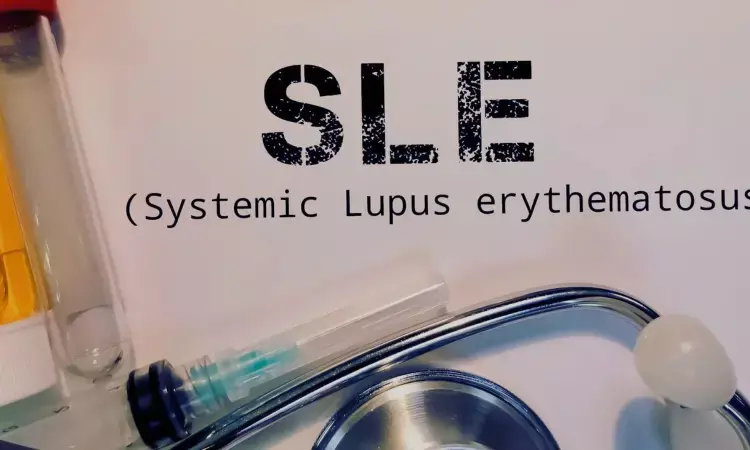- Home
- Medical news & Guidelines
- Anesthesiology
- Cardiology and CTVS
- Critical Care
- Dentistry
- Dermatology
- Diabetes and Endocrinology
- ENT
- Gastroenterology
- Medicine
- Nephrology
- Neurology
- Obstretics-Gynaecology
- Oncology
- Ophthalmology
- Orthopaedics
- Pediatrics-Neonatology
- Psychiatry
- Pulmonology
- Radiology
- Surgery
- Urology
- Laboratory Medicine
- Diet
- Nursing
- Paramedical
- Physiotherapy
- Health news
- Fact Check
- Bone Health Fact Check
- Brain Health Fact Check
- Cancer Related Fact Check
- Child Care Fact Check
- Dental and oral health fact check
- Diabetes and metabolic health fact check
- Diet and Nutrition Fact Check
- Eye and ENT Care Fact Check
- Fitness fact check
- Gut health fact check
- Heart health fact check
- Kidney health fact check
- Medical education fact check
- Men's health fact check
- Respiratory fact check
- Skin and hair care fact check
- Vaccine and Immunization fact check
- Women's health fact check
- AYUSH
- State News
- Andaman and Nicobar Islands
- Andhra Pradesh
- Arunachal Pradesh
- Assam
- Bihar
- Chandigarh
- Chattisgarh
- Dadra and Nagar Haveli
- Daman and Diu
- Delhi
- Goa
- Gujarat
- Haryana
- Himachal Pradesh
- Jammu & Kashmir
- Jharkhand
- Karnataka
- Kerala
- Ladakh
- Lakshadweep
- Madhya Pradesh
- Maharashtra
- Manipur
- Meghalaya
- Mizoram
- Nagaland
- Odisha
- Puducherry
- Punjab
- Rajasthan
- Sikkim
- Tamil Nadu
- Telangana
- Tripura
- Uttar Pradesh
- Uttrakhand
- West Bengal
- Medical Education
- Industry
Belimumab initiation may help lupus patients reduce their reliance on oral corticosteroids

USA: Findings from a new trial have provided more real-world evidence for belimumab's steroid-sparing effect, showing significant reductions in oral corticosteroid (OCS) dosage and overall use among treated patients with systemic lupus erythematosus (SLE).
The findings, published in Lupus Science & Medicine, support a long-term treatment strategy among relevant patients treating rheumatic disease with a significant rate of corticosteroids.
"Previous studies have evaluated data from randomized trials, prospective chart reviews and retrospective claims, the present study is unique as it brings the perspective of community rheumatologists by leveraging real-world data from a large US rheumatology network,” the researchers wrote. "It seeks to evaluate patterns of OCS use before and during treatment with belimumab.”
The study was conducted by Karen Worley, GSK, Value, Evidence & Outcomes, Cincinnati, Ohio, USA, and colleagues to compare oral corticosteroid (OCS) use in patients with SLE in a US rheumatology network pre- and post-belimumab initiation in a retrospective cohort study (GSK Study 214140).
The researchers used data from the Patient-Important Outcomes Data Repository (PIONEER)-Rheumatology database. Eligible patients were ≥18 years old diagnosed with SLE and treated by belimumab, a BLyS inhibitor monoclonal antibody, and had available data for >180 days pre- and >360 days post-belimumab initiation. The index was the data of belimumab initiation.
The primary outcome was a change in oral corticosteroid use from period 1 to periods 2 and 3 per the following outcomes: mean daily OCS dose for days supplied/patient; proportion of patients receiving OCS; mean total number of OCS days supplied/patient; mean total OCS dose/patient; the proportion of patients with OCS doses of ≤5 mg/day and ≤7.5 mg/day for days supplied.
These changes were evaluated between period (P)1 (6 months pre-index) and P2 (first six months post-index), and P3 (second 6 months post-index) in patients with OCS use in P1 who persisted with belimumab at each assessed period.
Based on the study, the researchers reported the following findings:
- 608 patients received belimumab for 180 days (full analysis set (FAS)) and 492 for 360 days. Most patients were female (92.8%); 70.4% had moderate SLE.
- In P1, 56.3% of FAS patients and 54.5% of patients who persisted with belimumab for 360 days received OCS.
- Among patients receiving OCS in P1, significantly fewer patients received OCS in P2 (78.4%) and P3 (64.9%) vs P1 (100.0%).
- Significant reductions from P1 were observed in P2 and P3 in the mean total OCS dose/patient, the mean OCS daily dose for days supplied and the proportions of patients with OCS dose of ≤5 mg/day and ≤7.5 mg/day, and the mean total OCS days supplied/patient in P3 only.
The findings indicate a lower proportion of patients reliant on OCS for SLE management after belimumab initiation.
“This study suggests that long-term use of belimumab in a community rheumatology practice may reduce overall oral corticosteroid use and its associated deleterious effects in SLE patients,” the researchers concluded.
Reference:
Worley K, Milligan S, Rubin B. Steroid-sparing effect of belimumab: results from a retrospective observational study of real-world data. Lupus Sci Med. 2023 Dec 22;10(2):e001024. doi: 10.1136/lupus-2023-001024. PMID: 38135455; PMCID: PMC10748994.
Dr Kamal Kant Kohli-MBBS, DTCD- a chest specialist with more than 30 years of practice and a flair for writing clinical articles, Dr Kamal Kant Kohli joined Medical Dialogues as a Chief Editor of Medical News. Besides writing articles, as an editor, he proofreads and verifies all the medical content published on Medical Dialogues including those coming from journals, studies,medical conferences,guidelines etc. Email: drkohli@medicaldialogues.in. Contact no. 011-43720751


